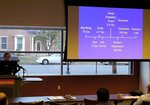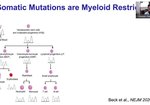Pyruvate Kinase Deficiency: Clinical Manifestations and Treatment Approach
About PYRUKYND® (mitapivat)
PYRUKYND is a pyruvate kinase activator indicated for the treatment of hemolytic anemia in adults with pyruvate kinase (PK) deficiency.
IMPORTANT SAFETY INFORMATION
Acute Hemolysis: Acute hemolysis with subsequent anemia has been observed following abrupt interruption or discontinuation of PYRUKYND in a dose-ranging study. Avoid abruptly discontinuing PYRUKYND. Gradually taper the dose of PYRUKYND to discontinue treatment if possible. When discontinuing treatment, monitor patients for signs of acute hemolysis and anemia including jaundice, scleral icterus, dark urine, dizziness, confusion, fatigue, or shortness of breath.
Adverse Reactions: Serious adverse reactions occurred in 10% of patients receiving PYRUKYND in the ACTIVATE trial, including atrial fibrillation, gastroenteritis, rib fracture, and musculoskeletal pain, each of which occurred in 1 patient. In the ACTIVATE trial, the most common adverse reactions including laboratory abnormalities (≥10%) in patients with PK deficiency were estrone decreased (males), increased urate, back pain, estradiol decreased (males), and arthralgia.
Drug Interactions:
• Strong CYP3A Inhibitors and Inducers: Avoid concomitant use.
• Moderate CYP3A Inhibitors: Do not titrate PYRUKYND beyond 20 mg twice daily.
• Moderate CYP3A Inducers: Consider alternatives that are not moderate inducers. If there are no alternatives, adjust PYRUKYND dosage.
• Sensitive CYP3A, CYP2B6, CYP2C Substrates Including Hormonal Contraceptives: Avoid concomitant use with substrates that have narrow therapeutic index.
• UGT1A1 Substrates: Avoid concomitant use with substrates that have narrow therapeutic index.
• P-gp Substrates: Avoid concomitant use with substrates that have narrow therapeutic index.
Hepatic Impairment: Avoid use of PYRUKYND in patients with moderate and severe hepatic impairment.
Please see full Prescribing Information for PYRUKYND.
©2022 Agios Pharmaceuticals, Inc. All rights reserved. PKD-US-1065 11/22




















